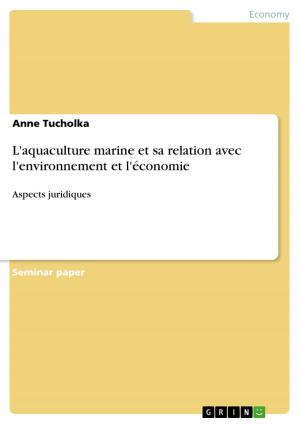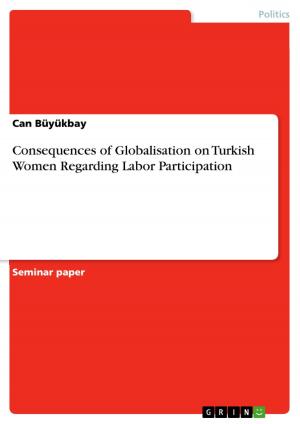The Formation of European Economic Community in the context of International Political Economy Theory
Nonfiction, Social & Cultural Studies, Political Science| Author: | Stavroula Chrisdoulaki | ISBN: | 9783640737161 |
| Publisher: | GRIN Publishing | Publication: | October 29, 2010 |
| Imprint: | GRIN Publishing | Language: | English |
| Author: | Stavroula Chrisdoulaki |
| ISBN: | 9783640737161 |
| Publisher: | GRIN Publishing |
| Publication: | October 29, 2010 |
| Imprint: | GRIN Publishing |
| Language: | English |
Seminar paper from the year 2010 in the subject Politics - International Politics - Region: Western Europe, grade: A, University of Flensburg, language: English, abstract: The European Union (EU) is considered as a unique institutional structure not only because of the transfer of the national sovereignty in a supranational level but mostly because of its long term existence and expansion. Although the institutional structure of the EU is much different and undoubtedly improved from the one of the European Economic Community (EEC) the study of the initiating process, namely the EEC, is essential in order to understand what the basis of the recent EU is. Hence, the research for the initiating process of the EEC and sequentially the international context in which the EEC was formed are of great importance not only for the academic scholars but mostly for the European citizens. The concern of this study is the formation of the EEC under the International Political Economy theory (IPE), which emerged mainly after the Second World War and expanded in the decade of 70s. The cooperation of the leader European states in the formation of this institutional structure and its main task of European cooperation and adoption of common policies in order to achieve the demanded goal of economic development and prosperity is mainly based on the International Political Economy theory, since the last addresses the interaction of international relation and political economy. The first part of this study is devoted to the analysis of the International Political Economy and forms the theoretical framework of the study. Moreover, it presents the variety of the IPE and stresses its main aspects. Following, there is an introduction of the formation of the EEC and a short analysis of the political economies of the member states, which is helpful in order to have an overview of the different economies and the possible implications for the formation of the EEC. Finally, the conclusion consists of the outputs of the theoretical framework combined with the analysis of the economic situation of the different countries and attempts to present the causal relation between IPE and the formation of EEC.
Seminar paper from the year 2010 in the subject Politics - International Politics - Region: Western Europe, grade: A, University of Flensburg, language: English, abstract: The European Union (EU) is considered as a unique institutional structure not only because of the transfer of the national sovereignty in a supranational level but mostly because of its long term existence and expansion. Although the institutional structure of the EU is much different and undoubtedly improved from the one of the European Economic Community (EEC) the study of the initiating process, namely the EEC, is essential in order to understand what the basis of the recent EU is. Hence, the research for the initiating process of the EEC and sequentially the international context in which the EEC was formed are of great importance not only for the academic scholars but mostly for the European citizens. The concern of this study is the formation of the EEC under the International Political Economy theory (IPE), which emerged mainly after the Second World War and expanded in the decade of 70s. The cooperation of the leader European states in the formation of this institutional structure and its main task of European cooperation and adoption of common policies in order to achieve the demanded goal of economic development and prosperity is mainly based on the International Political Economy theory, since the last addresses the interaction of international relation and political economy. The first part of this study is devoted to the analysis of the International Political Economy and forms the theoretical framework of the study. Moreover, it presents the variety of the IPE and stresses its main aspects. Following, there is an introduction of the formation of the EEC and a short analysis of the political economies of the member states, which is helpful in order to have an overview of the different economies and the possible implications for the formation of the EEC. Finally, the conclusion consists of the outputs of the theoretical framework combined with the analysis of the economic situation of the different countries and attempts to present the causal relation between IPE and the formation of EEC.















